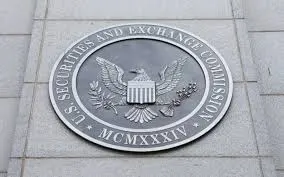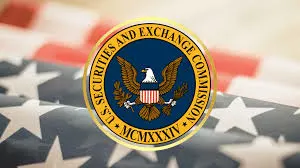The Securities and Exchange Commission (SEC) plays a pivotal role in ensuring the stability and transparency of financial markets in the United States. Established in 1934 after the Great Depression.
The SEC is a government agency responsible for regulating and overseeing securities markets. Its mission is to protect investors, maintain fair and efficient markets, and facilitate capital formation. In this article, we will explore the SEC’s structure, functions, and its significant impact on the global financial landscape.
What is the SEC?
The SEC is an independent U.S. government agency responsible for enforcing securities laws. It regulates the securities industry, which includes stock exchanges, brokers, investment advisers, and mutual funds. The agency’s primary goal is to prevent fraud, ensure fair trading practices, and make sure that investors have access to accurate information. By providing a stable financial environment, the SEC promotes trust in the financial markets and enables companies to raise capital more easily.

SEC’s Key Functions
The SEC performs several crucial functions in regulating and monitoring the financial markets. Here are some of its key responsibilities:
- Protecting Investors: One of the SEC’s primary duties is to safeguard investors from fraud and unfair practices. It monitors the securities market to ensure that market participants adhere to the rules, ensuring transparency and accountability.
- Enforcing Securities Laws: The SEC enforces a wide range of securities laws designed to prevent manipulation and fraud. These laws require companies to disclose financial information, making it easier for investors to make informed decisions.
- Regulating Market Participants: The SEC supervises brokers, investment advisers, and other market participants to ensure compliance with legal standards. This regulation helps prevent conflicts of interest and unethical behavior in the market.
- Facilitating Capital Formation: The SEC ensures that businesses can raise capital by issuing securities, such as stocks and bonds, while protecting investors. Through its regulatory framework, it makes the capital-raising process efficient and trustworthy.
- Maintaining Fair and Efficient Markets: The SEC works to maintain an orderly market by overseeing exchanges, trading platforms, and clearing agencies. This helps prevent market manipulation, insider trading, and other unfair practices that could disrupt market efficiency.
SEC Structure and Leadership
The SEC is headed by five commissioners who are appointed by the President of the United States. These commissioners serve five-year terms and are responsible for the overall direction of the agency. The President designates one commissioner as the chairman, who acts as the SEC’s chief executive officer and spokesperson.
The SEC is organized into several divisions, each of which focuses on specific aspects of its mandate:
- Division of Corporation Finance: Oversees the disclosure of important financial information by public companies.
- Division of Enforcement: Investigates and takes legal action against violations of securities laws.
- Division of Investment Management: Regulates investment funds, including mutual funds and exchange-traded funds (ETFs).
- Division of Trading and Markets: Focuses on overseeing market participants and ensuring that trading platforms operate fairly.
- Office of Compliance Inspections and Examinations: Conducts examinations of registered firms to ensure compliance with securities laws.

The SEC’s Impact on Financial Markets
The SEC has a profound impact on both U.S. and global financial markets. Its regulatory oversight helps maintain investor confidence, which is critical for the smooth functioning of the financial system. By enforcing transparency and accountability, the SEC prevents fraudulent activities and promotes fair trading practices, thereby fostering long-term stability in the market.
Furthermore, the SEC’s work extends beyond the U.S. borders. Many international regulators look to the SEC’s framework as a model for their own regulatory systems. Global investors also rely on the SEC’s oversight to ensure that U.S. securities are trustworthy, which enhances global investment in U.S. markets.
Challenges and Future of the SEC
Despite its successes, the SEC faces several challenges. As technology evolves, the agency must adapt to emerging trends such as cryptocurrency, high-frequency trading, and cybersecurity risks. The SEC is also tasked with balancing the interests of investors, corporations, and market participants while ensuring that the capital markets remain open and competitive.
Looking ahead, the SEC’s role will continue to evolve, as it adapts to changes in technology, market dynamics, and global financial regulations. As the primary guardian of U.S. financial markets, the SEC will remain instrumental in shaping the future of global finance.





